Top 5 Reasons to Visit Xiaoqi Village: Experience Authentic Chinese Heritage
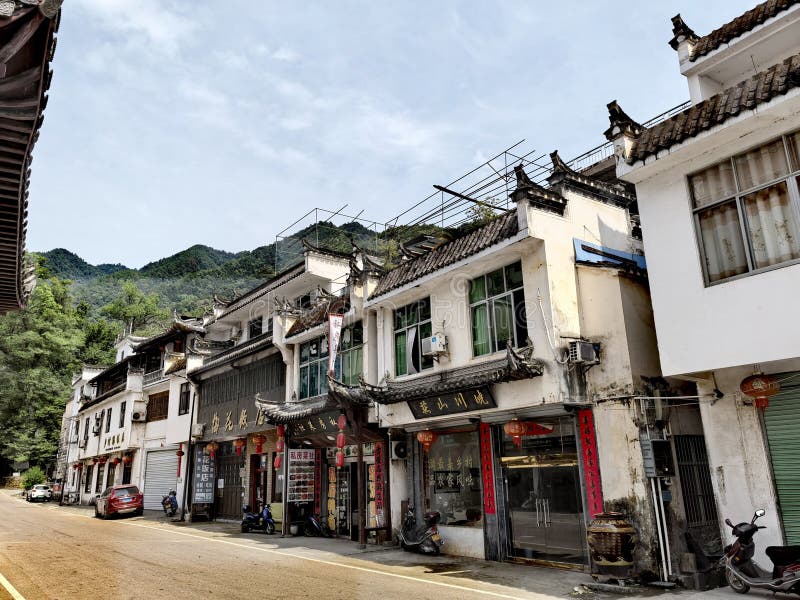
An Essential Guide to Visiting Xiaoqi Village
In This Guide
- An Essential Guide to Visiting Xiaoqi Village
- The Rich History and Legends of Xiaoqi Village
- Main Highlights: What You Absolutely Can’t Miss
- Planning Your Visit: A Practical Guide
- Tickets: Prices, Booking, and Tips
- How to Get There: A Complete Transportation Guide
- Local Cuisine and Accommodation Nearby
- Frequently Asked Questions
- Final Thoughts on Your Trip
Nestled within the picturesque landscape of Wuyuan County, Xiaoqi Village (婺源晓起) offers an enchanting journey into the heart of traditional Chinese culture and history. As you traverse the winding paths of this charming locale, you’ll find a captivating blend of ancient architecture, vibrant agriculture, and the warm hospitality of its residents. Known for its stunning scenery of terraced fields and blooming chrysanthemum flowers, Xiaoqi is not just a feast for the eyes—it’s a portal to the rich heritage of the Hui people, whose unique architectural style is evident in the village’s well-preserved homes.
However, like many destinations that balance authenticity with tourism, Xiaoqi presents a dual experience. While the lower part of the village has become somewhat commercialized, dotted with souvenir shops that might detract from its charm, a venture into the upper reaches reveals a quieter, more genuine side of this cultural gem. Here, you can lose yourself in the peaceful surroundings, interact with friendly locals, and discover the hidden treasures that lie beyond the bustling stalls.
Whether you are an avid hiker looking for scenic trails or a history enthusiast eager to delve into the intricacies of Chinese village life, Xiaoqi Village beckons with its promise of unforgettable experiences. Prepare to immerse yourself in the breathtaking beauty and cultural richness that this village encapsulates, making it a must-visit on your journey through China’s historical landscape.

Xiaoqi Village.
The Rich History and Legends of Xiaoqi Village
Nestled within the scenic hills of Wuyuan County, Xiaoqi Village (婺源晓起) stands as a testament to the rich tapestry of Chinese history and culture. This quaint village is not just a picturesque destination; it is steeped in legends and historical significance that paint a vivid picture of life in ancient China.
A Glimpse into the Past
Xiaoqi Village dates back several centuries, with its origins rooted in the Ming and Qing Dynasties. The village is characterized by its traditional Hui-style architecture, which features whitewashed walls and black-tiled roofs, harmonizing beautifully with the surrounding landscapes. Although many of the buildings may appear newly constructed, they are designed to maintain the traditional aesthetic that reflects the village’s historical significance.
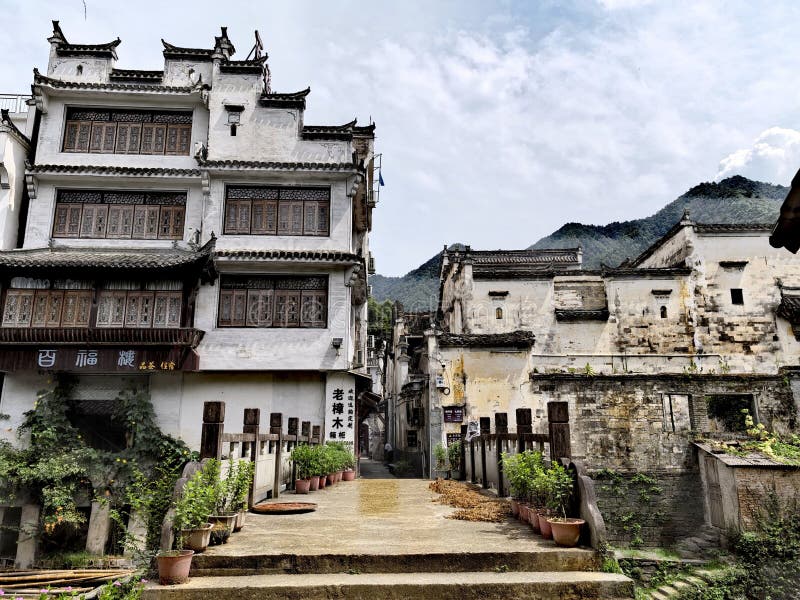
Xiaoqi Village.
The village’s name, “Xiaoqi,” meaning “dawn awakening,” is believed to symbolize the rejuvenation of life and culture after the cycles of time. As the sun rises over the terraced fields adorned with vibrant chrysanthemum flowers, the village comes alive with the echoes of its storied past.
Legends and Folklore
Xiaoqi Village is shrouded in intriguing legends that have been passed down through generations, enriching its cultural heritage. One prominent tale speaks of a legendary figure known as “The Scholar of Xiaoqi.” According to local lore, this scholar, revered for his wisdom and scholarly achievements, would often wander the village’s lush hills, seeking inspiration from nature. It is said that the scenic beauty of Xiaoqi, with its rolling hills and serene rivers, fueled his creativity, leading him to compose poems that celebrated the simple joys of rural life.
Another captivating legend recounts the tale of a hidden treasure buried beneath the village. Local elders tell of a wealthy merchant who, fearing for his fortune during times of turmoil, concealed his riches in a secret location. To this day, treasure hunters and curious travelers journey to Xiaoqi, hoping to uncover the fabled wealth that remains hidden, symbolizing the village’s allure and mystery.

Xiaoqi Village.
Cultural Significance
Beyond its legends, Xiaoqi Village has played a pivotal role as a center for agricultural innovation. The region is renowned for its traditional farming practices, particularly in cultivating tea and rice. The villagers have preserved these age-old techniques, allowing visitors to witness firsthand the harmonious relationship between the land and its inhabitants. This cultural landscape is not merely a backdrop; it is a living testament to the resilience and ingenuity of the local people.
A Journey Through Time
Visiting Xiaoqi Village offers more than just scenic beauty; it provides an immersive experience into the heart of Chinese culture and history. While some parts of the village have become commercialized, venturing further along the ancient postal roads reveals hidden gems and authentic interactions with the locals. Here, travelers can partake in traditional meals, explore the historical architecture, and absorb the tranquil atmosphere that defines this enchanting village.

Xiaoqi Village.
Xiaoqi Village is a destination where history and legend intertwine, inviting international travelers to delve into its rich narrative and appreciate the enduring spirit of a place that has stood the test of time. As you wander through its streets, listen closely; the whispers of the past may still echo among the hills, waiting to share their stories with those willing to explore.
Main Highlights: What You Absolutely Can’t Miss
Discover the Unmissable Highlights of Xiaoqi Village
Nestled in the picturesque Wuyuan County, Xiaoqi Village is a treasure trove of history, culture, and stunning landscapes. While the lower part of the village can feel overly commercialized, the upper section offers a more authentic experience that’s well worth exploring. Here’s what you absolutely can’t miss when visiting this charming destination.
1. Stroll Through the Upper Village
The upper part of Xiaoqi Village is where you’ll find a more traditional atmosphere. As you wander through the narrow, winding streets, take time to appreciate the distinctive Hui-style architecture. Many buildings here reflect the traditional gray brick and white plaster aesthetic characteristic of this region, which is steeped in history. Look for the few remaining old Hui houses that stand as a testament to the village’s heritage.
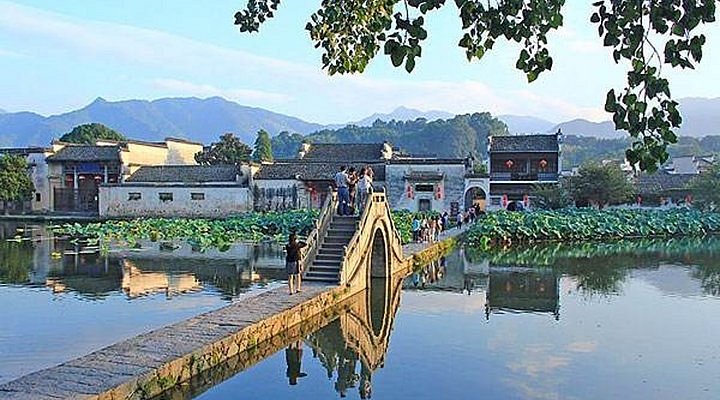
Xiaoqi Village.
2. Hiking Trails to Nearby Villages
For adventure seekers, the hiking trails leading from Xiaoqi to nearby villages like Guangkeng are a must. The well-marked yet rustic trails wind through stunning landscapes dotted with fields of chrysanthemums and lush greenery. Expect to spend approximately 3 to 4 hours on this hike, and consider hiring a local guide for an enriching experience. Not only will you enjoy the natural beauty, but you’ll also have the chance to interact with friendly locals along the way.
3. Explore Hidden Gems Along the Old Postal Road
Venture beyond the main tourist paths by walking along the Old Postal Road. This less-trodden route takes you deeper into the heart of Xiaoqi, revealing hidden spots that showcase the village’s authentic charm. Here, you might stumble upon quaint shops, local artisans, and serene spots perfect for a moment of reflection or a scenic photo op.
4. Visit Traditional Tea Houses and Guesthouses
In the upper part of the village, you’ll find inviting guesthouses and tea houses where you can enjoy a warm cup of local tea. Engaging with the owners can provide invaluable insights into the culture and traditions of the area. Many places also serve delicious traditional meals made from locally sourced ingredients, allowing you to taste the flavors of Wuyuan.

Xiaoqi Village.
5. Cultural Interactions with Locals
Don’t miss the opportunity to interact with the locals, who are known for their hospitality. Many villagers are eager to share stories about their lives and the history of Xiaoqi. Whether you’re chatting with a farmer in the fields or a shopkeeper in the upper village, these encounters will enrich your understanding of the culture.
6. Photography Opportunities
Xiaoqi Village is a photographer’s dream. From the stunning landscapes of terraced fields to the intricate details of traditional architecture, every corner offers a perfect shot. Early morning or late afternoon light can create breathtaking scenes, especially when the village is bathed in golden sunlight.
7. Watch the Seasons Change
If your travel plans allow, try to visit during different seasons to witness how the village transforms. In spring, the fields burst with vibrant colors, while autumn showcases the golden hues of crops ready for harvest. Each season brings a unique charm, making Xiaoqi Village a year-round destination.

Xiaoqi Village.
8. Local Crafts and Souvenirs
While the lower part may be filled with souvenir shops, you can still find unique local crafts if you look closely. Keep an eye out for handcrafted items such as wooden combs, bamboo products, and herbal teas, which make for thoughtful souvenirs that tell a story.
Conclusion
Xiaoqi Village offers an unforgettable glimpse into the rich tapestry of Chinese history and culture. By exploring its hidden corners, engaging with the locals, and savoring the natural beauty, you’ll create lasting memories in this enchanting destination. Don’t forget your camera and an open heart as you embark on this remarkable journey!

Xiaoqi Village.
Planning Your Visit: A Practical Guide
Getting to Know Xiaoqi Village: A Practical Guide for Your Visit
Nestled in the lush landscapes of Wuyuan County, Xiaoqi Village (婺源晓起) offers a captivating glimpse into the rich tapestry of Chinese history and culture. While its beauty is undeniable, proper planning will ensure you make the most of your visit. Here’s everything you need to know to navigate this enchanting village.
When to Visit
- Best Time: The optimal time to explore Xiaoqi Village is during the spring (March to May) and autumn (September to November) seasons. During these months, the weather is mild, and the surrounding landscapes are vibrant, showcasing blooming flowers and colorful foliage.
- Avoiding Crowds: Early mornings or weekdays are best for experiencing the village with fewer tourists, allowing you to soak in its charm at a leisurely pace.
Getting There
- By Bus: Xiaoqi is accessible via public transport from Wuyuan County. Frequent buses connect Wuyuan to various villages, including Xiaoqi. Take a bus to Lingjiao and then hike to Guangkeng to enjoy scenic views along the way.
- Shared Taxis: For a more direct route, consider taking a shared taxi, which is an affordable option that can drop you off close to the village.

Xiaoqi Village.
Exploring the Village
- Upper vs. Lower Xiaoqi: The village is divided into upper and lower sections. The lower part is often overcrowded with souvenir shops and tourist stalls, which may detract from the authentic experience. In contrast, the upper part offers a more genuine glimpse into local life, with well-preserved Hui-style architecture and fewer visitors.
- Hiking Opportunities: If you’re an adventurous traveler, consider hiking along the old postal road that leads to the upper part of Xiaoqi. This scenic trail, while not always well-maintained, reveals hidden gems and stunning vistas of the surrounding countryside. Aim for a hiking duration of 3 to 4 hours, and consider hiring a local guide for safety and enhanced experience.
Accommodations
- Local Guesthouses: For a truly immersive experience, stay at one of the local guesthouses. Many offer basic accommodations with meals included, allowing you to interact with the villagers and savor home-cooked dishes.
- Booking Ahead: During peak seasons, it’s wise to book accommodations in advance to secure a place that meets your needs.
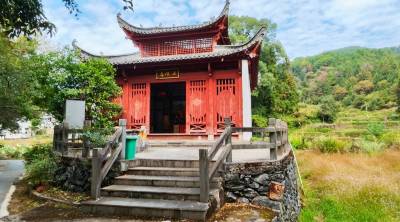
Xiaoqi Village.
What to Bring
- Comfortable Footwear: Given the village’s cobblestone paths and hiking trails, sturdy shoes are recommended.
- Water and Snacks: While there are local eateries, having water and snacks on hand can enhance your hiking experience.
- Camera: Capture the breathtaking scenery and unique architecture, but remember to be respectful of local customs and ask permission before photographing people.
Cultural Etiquette
- Respect Local Traditions: Xiaoqi is a living village with an active community. Be mindful of local customs and engage respectfully with residents.
- Language: While some locals may speak basic English, learning a few phrases in Mandarin can enrich your interactions and show appreciation for the culture.
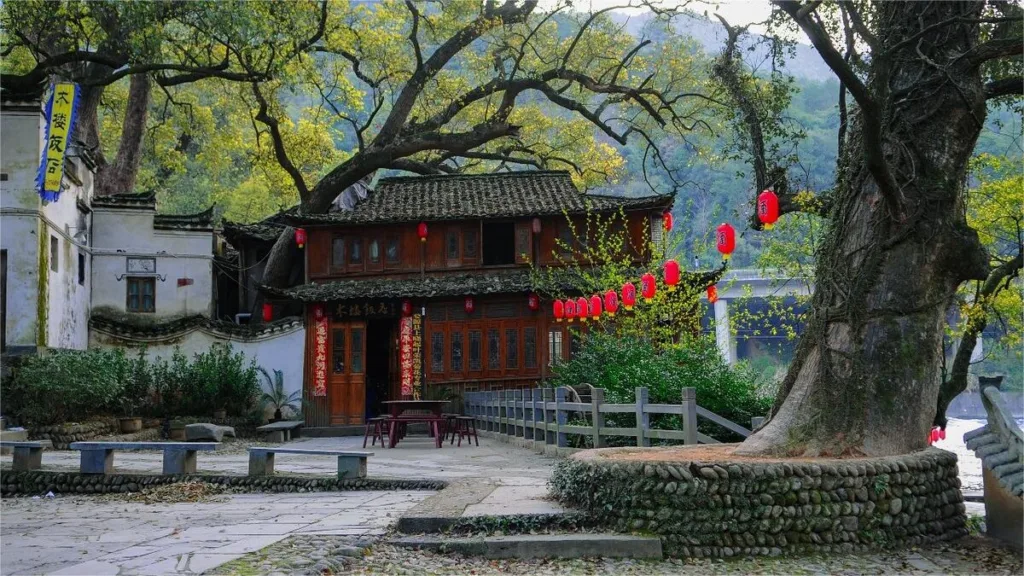
Xiaoqi Village.
Nearby Attractions
- Wangkou Village: A short trip from Xiaoqi, this historic site is noted for its impressive architecture.
- Qingyuan Ancient Village: Another nearby gem, this village boasts stunning landscapes and historic buildings, perfect for a day trip.
Final Thoughts
Xiaoqi Village is a treasure trove of history and culture waiting to be discovered. With careful planning, you can navigate the touristy aspects and delve into the heart of this beautiful village. Embrace the natural beauty, engage with the local community, and create memories that will last a lifetime. Whether you’re hiking through the countryside or sipping tea in a guesthouse, Xiaoqi offers an unforgettable experience steeped in the essence of traditional Chinese life.
Tickets: Prices, Booking, and Tips
Exploring Xiaoqi Village: Ticket Information and Travel Tips
When planning your visit to Xiaoqi Village (婺源晓起), a charming destination nestled in the picturesque landscapes of Wuyuan County, it’s essential to understand the ticketing landscape, alongside practical tips to enhance your experience.
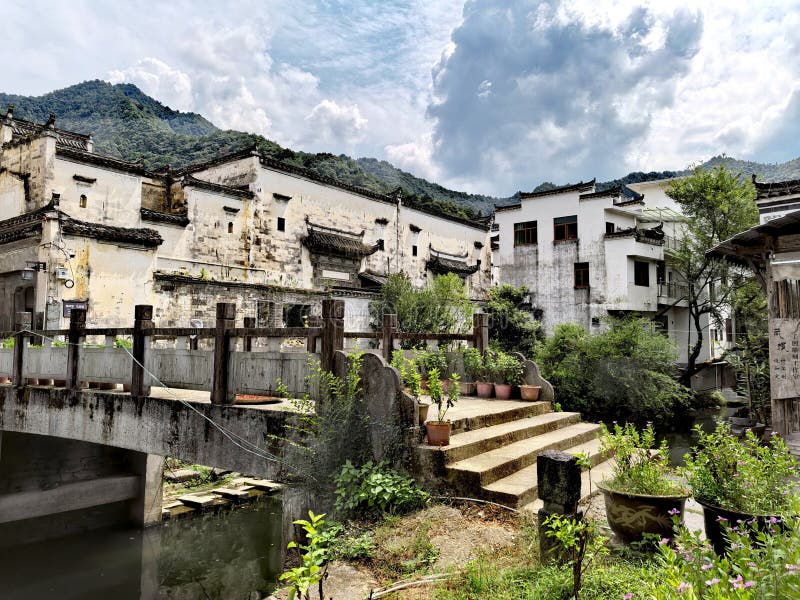
Xiaoqi Village.
Ticket Prices
-
General Admission: The entrance fee typically falls in the range of CNY 80 to CNY 100 (approximately $12 to $15 USD), granting you access to the main attractions within the village. This fee can vary based on the season and any special events that may be ongoing.
-
Discounts: Keep an eye out for discounts for students and seniors, which can reduce the cost by approximately 20%. Always bring valid identification to ensure you can take advantage of these savings.
-
Combo Tickets: If you plan to explore other nearby attractions, consider purchasing a combo ticket that includes other villages or sites in Wuyuan. This can often lead to additional savings and a more streamlined experience.
Booking Your Tickets
-
On-site Purchase: Most visitors opt to buy their tickets at the entrance. However, during peak seasons, it’s advisable to arrive early to avoid long queues.
-
Online Booking: Some travel platforms and local tourism websites may offer the option to book tickets in advance, which can save time and guarantee your entry on busy days.
Tips for Your Visit
-
Timing Your Visit: To escape the crowds, aim to visit during weekdays or early in the morning. The lower part of the village can feel particularly touristy, with many souvenir shops lining the streets. For a more authentic experience, venture to the upper part of Xiaoqi, which is less commercialized and offers a glimpse into traditional village life.
-
Exploring Beyond the Ticketed Areas: The upper part of Xiaoqi Village is a hidden gem. After exploring the main attractions, take a leisurely walk along the old postal road to discover ancient architecture and beautiful rural landscapes. This area is less frequented by tourists and provides a more genuine connection to the local culture.
-
Transportation Options: Public transportation options, like shared taxis, are available and can be a cost-effective way to navigate to and from Xiaoqi Village. Expect to pay around CNY 10 to CNY 15 (approximately $1.50 to $2.50 USD) for short trips to and from nearby villages.
-
Stay Hydrated and Prepared: Given the rural setting and potential for hiking, bring water, snacks, and appropriate footwear, especially if you plan to explore the hiking trails leading to neighboring villages.
-
Engage with Locals: Don’t hesitate to interact with the local villagers. Many are eager to share their stories and traditions, providing a richer understanding of the village’s history and culture.
Final Thoughts
Xiaoqi Village offers a unique lens into the rich tapestry of Chinese history and rural life. By being mindful of ticketing options and planning your visit strategically, you can ensure a delightful experience that emphasizes both cultural appreciation and natural beauty. Enjoy your journey through this enchanting village!
How to Get There: A Complete Transportation Guide
Navigating Your Way to Xiaoqi Village
Xiaoqi Village, nestled in the picturesque Wuyuan County of Jiangxi Province, is a gem worth discovering for those with a keen interest in Chinese history and culture. To ensure your journey to this enchanting destination is smooth and efficient, here’s a comprehensive guide to the various transportation options available.
Getting to Wuyuan County
- By Air:
- The nearest major airport is Jingdezhen Luojia Airport (JDZ), located approximately 70 kilometers from Wuyuan. From the airport, you can take a taxi or arrange a private transfer to Wuyuan.
-
Alternatively, Nanchang Changbei International Airport (KHN) is around 200 kilometers away. From there, you can take a high-speed train or bus to Wuyuan.
-
By Train:
- Wuyuan has its own train station, which is well-connected to major cities in China. You can take a high-speed train from cities like Nanchang, Hangzhou, or Shanghai.
-
Upon arrival at Wuyuan Railway Station, you can hire a taxi or use ride-sharing apps to reach Xiaoqi Village.
-
By Bus:
- Long-distance buses operate frequently from nearby cities to Wuyuan. The Wuyuan Bus Station is the main hub for intercity and local transportation.
- Buses from Nanchang, Jingdezhen, and other surrounding cities will bring you directly to Wuyuan.
Local Transportation to Xiaoqi Village
Once you reach Wuyuan County, getting to Xiaoqi Village is quite straightforward:
- By Bus:
- From Wuyuan’s main bus station, you can catch a local bus heading towards Lingjiao. The bus ride takes approximately 30-40 minutes.
-
After disembarking at Lingjiao, you have the option to hike to Xiaoqi Village, which is about a 3 to 4-hour trek. The trail is scenic but may require a guide for safety, especially if you’re unfamiliar with the area.
-
By Taxi:
- Taxis are readily available in Wuyuan. A direct taxi ride to Xiaoqi Village from the town center will take around 20 minutes and cost approximately 30-50 CNY.
-
Shared taxis are also an economical option, particularly for budget travelers. These can be found along the main roads leading out of Wuyuan.
-
By Bicycle:
- For the adventurous spirit, renting a bicycle is a fantastic way to explore the stunning countryside around Wuyuan. Several bike rental shops are available in the town, and cycling gives you the flexibility to stop and enjoy the breathtaking scenery along the way.
Tips for Travelers
- Plan Ahead: It’s advisable to check bus schedules in advance, as they may vary by season.
- Language Barrier: While many locals are friendly, English speakers may be limited. Having a translation app or phrasebook can enhance your experience.
- Cash is King: While some places accept cards, it’s wise to carry cash, especially in rural areas like Xiaoqi Village.
With this guide in hand, you’re now equipped to navigate your journey to Xiaoqi Village seamlessly. Prepare to immerse yourself in the rich culture and history that this charming locale has to offer!
Local Cuisine and Accommodation Nearby
Nestled within the picturesque landscape of Wuyuan County, Xiaoqi Village (婺源晓起) offers an authentic taste of local culture, particularly through its delightful culinary offerings and cozy accommodations.
Local Cuisine
When visiting Xiaoqi, immerse yourself in the flavors of Jiangxi province. Here are some culinary highlights to savor:
-
Wuyuan Rice Noodles (婺源米粉): A local specialty, these rice noodles are often served in a savory broth with fresh vegetables, meat, or seafood. Make sure to try them at one of the small eateries dotting the village.
-
Chrysanthemum Tea (菊花茶): Renowned for its delicate flavor and health benefits, this tea is made from the local chrysanthemum flowers that bloom abundantly in the area. Many tea houses offer freshly brewed options, often accompanied by local snacks.
-
Stir-fried Bamboo Shoots (炒竹笋): Seasonal and fresh, bamboo shoots are a popular dish in local restaurants, prepared with a delightful mix of spices and vegetables.
-
Pickled Vegetables (腌菜): A staple in Jiangxi cuisine, these pickled delights often accompany meals, providing a tangy contrast to the savory dishes.
For a more immersive experience, consider dining at a family-run restaurant or a guesthouse offering home-cooked meals. This not only supports local families but also allows you to engage with the community and learn about their culinary traditions.
Accommodation Nearby
Finding a comfortable place to rest after a day of exploring is essential. Below are some recommended accommodations near Xiaoqi Village:
-
Xiaoqi Guesthouse (晓起客栈): This charming guesthouse is known for its warm hospitality and traditional architecture. Rooms are basic yet cozy, providing a true taste of local living. The hosts often prepare delicious homemade meals featuring local ingredients.
-
Huangkeng Inn (黄坑小院): Located a short hike away from Xiaoqi, this inn offers stunning views of the surrounding countryside. Guests can enjoy traditional meals and partake in activities like tea-picking or hiking in the nearby hills.
-
Wuyuan Ancient Town Boutique Hotel (婺源古镇精品酒店): If you’re looking for a bit more comfort, this hotel is a great choice. It combines modern amenities with traditional decor and is conveniently located for easy access to local attractions.
-
Farm Stays (农家乐): For a unique experience, consider staying at a local farm. These accommodations offer rustic charm and the opportunity to engage in farming activities, providing a deeper connection to the land and its traditions.
Closing Thoughts
Xiaoqi Village provides an enriching experience for those eager to explore authentic Jiangxi cuisine and local hospitality. Whether indulging in the flavors of the region or unwinding in a welcoming guesthouse, your stay in this charming village will undoubtedly leave a lasting impression.
Frequently Asked Questions
Common Questions About Visiting Xiaoqi Village
1. What is Xiaoqi Village known for?
Xiaoqi Village is celebrated for its picturesque landscapes, traditional Hui architecture, and agricultural beauty, particularly during the chrysanthemum blooming season. The village offers a glimpse into rural life in Jiangxi Province, with opportunities to explore its serene surroundings.
2. How do I get to Xiaoqi Village?
Travelers can reach Xiaoqi Village by taking a bus from Wuyuan County, which is well-connected to nearby cities. Shared taxis are also an option for those looking for a more direct route. The journey allows you to experience the beautiful countryside along the way.
3. Are there any tourist traps in Xiaoqi Village?
While Xiaoqi Village has areas that feel overly commercialized, particularly in the lower section where many souvenir shops are located, exploring the upper part of the village can reveal more authentic experiences. It’s advisable to venture beyond the main thoroughfare to find hidden gems and enjoy the village’s true charm.
4. What should I expect in terms of accommodations?
There are limited but charming guesthouse options in and around Xiaoqi Village. These often provide basic amenities and home-cooked meals, allowing visitors to enjoy an immersive experience. It’s recommended to book in advance, especially during peak tourist seasons.
5. What is the best time to visit Xiaoqi Village?
The ideal time to visit Xiaoqi Village is during the autumn months, particularly in November, when the chrysanthemum flowers are in full bloom, adding vibrant colors to the landscape. The weather during this period is generally mild and pleasant for outdoor exploration.
6. Is hiking recommended around Xiaoqi Village?
Yes, hiking is highly recommended for those looking to explore the beautiful landscapes surrounding Xiaoqi. Trails such as the one to Guangkeng offer scenic views and a chance to connect with nature. However, consider hiring a local guide for safety and to enhance your experience.
7. How can I ensure an authentic experience in Xiaoqi Village?
To enjoy an authentic experience, focus on exploring the less commercialized areas of the village. Engage with local residents, taste traditional dishes at family-run eateries, and consider participating in local crafts or farming activities. Avoid the heavily trafficked souvenir shops to truly appreciate the village’s heritage.
8. Are there any safety concerns while hiking in the area?
While hiking in and around Xiaoqi Village is generally safe, it’s advisable to remain aware of your surroundings. Certain trails may not be well-maintained, so proper footwear is essential. Additionally, be cautious of wildlife, such as snakes, and consider hiking with a companion or a local guide for added safety.
Final Thoughts on Your Trip
As you prepare to conclude your journey through Xiaoqi Village, it’s essential to reflect on the intricate tapestry of experiences that this enchanting destination offers. Nestled in the heart of Wuyuan County, Xiaoqi is a testament to China’s rich historical and cultural heritage, a place where the past harmoniously intertwines with the simplicity of rural life.
Embrace the Authenticity
While the lower part of Xiaoqi may present a more commercialized face, it is the upper section and the surrounding landscape that offer a glimpse into the village’s authentic charm. As you wander along the ancient paths, surrounded by lush fields of chrysanthemums and the stunning backdrop of the valley, you’re invited to connect with the local culture and traditions. Engage with the friendly villagers and savor home-cooked meals that reflect the flavors of Jiangxi province. Such interactions not only enrich your travel experience but also foster a deeper understanding of the people and their way of life.
Adventure Awaits
For the adventurous spirit, the hiking trails that lead to neighboring villages like Guangkeng provide a chance to explore the stunning countryside away from the crowds. The serenity of these trails, often devoid of tourists, allows for introspection and appreciation of the natural beauty that has inspired poets and artists for centuries. Just remember to take precautions and consider hiring a local guide to enhance your journey.
A Journey to Remember
Xiaoqi Village is more than just a destination; it is a journey into the heart of China’s rural heritage. Whether you find joy in its scenic landscapes, the intricate architecture of Hui-style houses, or the warmth of its people, your time spent here will undoubtedly leave an indelible mark on your travels.
As you bid farewell to Xiaoqi, carry with you the stories of the land, the laughter of its people, and the beauty of its traditions. These are the treasures that will linger in your memory long after you leave, beckoning you to return and explore more of what this extraordinary country has to offer. Safe travels!